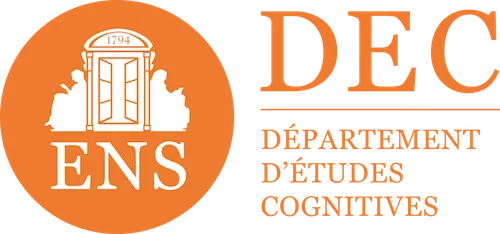

How is artificial intelligence transforming soft skills training?
Soft skills have long been an essential pillar of professional development. You have probably already integrated them into your training programs via various LMS (Learning Management Systems). However, a real revolution comes with the introduction of artificial intelligence (IA). While traditional LMS certainly offered soft skills training solutions, AI is accelerating, simplifying and above all considerably improving this process... and its results!
Imagine learning paths where each scenario is perfectly adapted to each employee, where feedback is instant and relevant, and where engagement is maintained through advanced personalization techniques. AI isn't just replacing old methods; it transcends them, making soft skills training more practical and more powerful than ever.
In this article, we therefore explore how AI is revolutionizing soft skills training, by discussing the concrete improvements it brings, examples of successful integration into LMS, and the tangible benefits for your teams and your business.
1. The challenges of soft skills training
Training in soft skills in e-learning has always been a complex undertaking. Unlike technical skills, soft skills, such as communication, leadership, leadership, stress management, empathy and conflict resolution, etc., are more subjective and require personalized approaches. These skills are critical for the success of teams and organizations, but they pose unique challenges when it comes to teaching them remotely.
The limitations of theoretical training
Theoretical training on soft skills is often insufficient. Reading articles or watching videos is not enough to fully integrate skills such as empathy or conflict management. As our article points out Soft Skills: How to properly train your employees in business, soft skills require active practice and concrete experimentation to be truly mastered.
The importance of role plays
To make soft skills learning more effective, realistic scenarios are essential. These simulations allow learners to confront scenarios that are close to reality, to test their skills and to receive immediate and constructive feedback. For example, a conflict management simulation can help a manager better understand interpersonal dynamics and develop effective strategies. According to our article Soft skills: The last wheel of the digital learning body, role plays make it possible to transform theoretical knowledge into practical skills, which is essential for effective soft skills training.
Situations are also crucial because they make often abstract recommendations concrete. The principles of active listening or the methods of creativity often need to be specified or adapted in the field. They allow learners to practice their soft skills in contexts similar to those they experience on a daily basis, with all their complexity. In addition, they encourage learners to work on their soft skills in interaction with their hard skills. For example, a salesperson dealing with a virtual customer must mobilize both his knowledge of the product and his active listening skills to fully understand the customer's needs, as well as his creativity to propose a suitable solution.
However, creating and customizing these scenarios with traditional LMSs requires a lot of work, time, and skills. Scenarios should be carefully designed, learner responses analyzed, and accurate and constructive feedback provided. This process can quickly become cumbersome for businesses to manage. This is why, without advanced tools, soft skills training in e-learning remains a major challenge, requiring considerable resources to be effective. To investigate the subject of scenarios in more detail, I recommend our article Interactive simulation: an apprenticeship in which you are the hero.
2. What AI brings for soft skills training
The introduction of artificial intelligence (AI) into Learning Management Systems (LMS) has transformed the way soft skills training is designed and delivered, making these best practices accessible to everyone and allowing for rapid and effective implementation. Here's how AI removes the barriers identified in the first part and the benefits it brings to your business.
Optimizing the design of training courses
One of the main benefits of AI is its ability to democratizing the creation of educational content. With tools like the LMS Didask, even non-experts can quickly create quality training paths. Here's how it works:
- Easy creation of personalized content : With the Didask LMS, even without educational prerequisites, you can import your existing content (slides, PDF, Word documents) and let the AI do the rest. The AI analyzes these documents, proposes an adapted pedagogical division and creates modules and granules accordingly. This makes it possible to quickly and easily transform your materials into a structured and effective training path.
- Interactive and tailor-made scenarios : Didask's educational AI allows you to create realistic and personalized situations en masse. Whether it is to simulate negotiations, conflict resolutions or leadership situations, AI generates scenarios adapted to each learner. This process is particularly useful for companies that have large volumes of employees to train, thus offering a significant creative boost while ensuring the relevance and effectiveness of the training. We talk about this in more detail in our article Scenarios & e-learning: what AI has changed
Improving the learning experience
The benefits of AI also extend to the learning experience, making training courses more engaging and impactful:
- Instant and relevant feedback : AI offers immediate and personalized feedback, which is essential for continuous improvement. For example, during a negotiation simulation, AI can analyze learner responses and provide real-time advice to improve communication and persuasion techniques. We detail this subject in our dedicated article: Feedback in the age of educational AI
- Personalized mentoring : One of the major innovations brought about by AI is virtual mentoring. In the Didask LMS, AI acts as a mentor, interacting with learners to guide them, answer their questions and provide them with personalized advice throughout their career, even training directly in their work tools. This level of support was not possible without AI, and it significantly increases the impact and effectiveness of training courses.
- Increased engagement through personalization : By personalizing learning paths and offering tailored scenarios, AI maintains a high level of engagement among learners. Courses are becoming more relevant and engaging, which motivates learners to invest fully in their development.
- Performance monitoring and analysis : AI tools allow accurate monitoring of learner performance. The Didask LMS uses analytical dashboards to monitor progress and identify areas that require special attention. This allows trainers and HR managers to better understand the needs of their teams and to adjust their training programs accordingly, without wasting time and with relevance.
Conclusion
Artificial intelligence is profoundly transforming soft skills training, rMaking practices that were once complex and accessible to all. With tools like the Didask LMS, even those without pedagogical expertise can create personalized and interactive training courses, allowing rapid and effective skills development. AI not only simplifies the design of these courses but also improves the learning experience through instant feedback, tailor-made scenarios and virtual mentoring.
For businesses, this not only means saving time and resources, but also better quality training for their employees. As soft skills requirements continue to grow in the professional world, AI offers innovative solutions for meet these needs in an effective... and scalable way.
If you are ready to revolutionize your approach to soft skills training and benefit from the latest technological advances, explore Didask's solutions. You will discover how our LMS can help you reach your training goals and develop the essential skills of your teams.
To go further on the subject of AI in e-learning, I recommend our following articles:
- LMS, AI and cognitive sciences, the winning e-learning jackpot
E-learning: generative AI at the service of learner engagement
Adaptive learning and Generative AI: the winning combination for online training!
Beyond ChatGPT: Generative AI at the service of pedagogy
And on the theme of soft skills:
- Soft skills: how to transform learning to become more effective?
4 daily reflexes that hinder our creativity
3 false beliefs that hinder our effectiveness at work
These natural mechanisms that prevent us from collaborating well at work
Make an appointment directly with our eLearning experts for a demo or simply more information.












